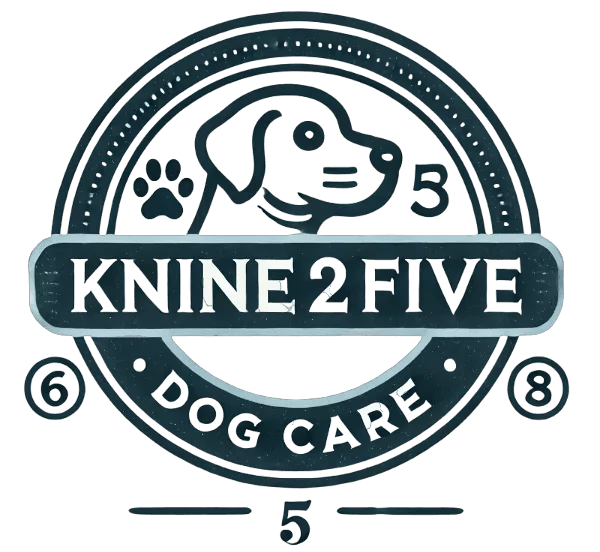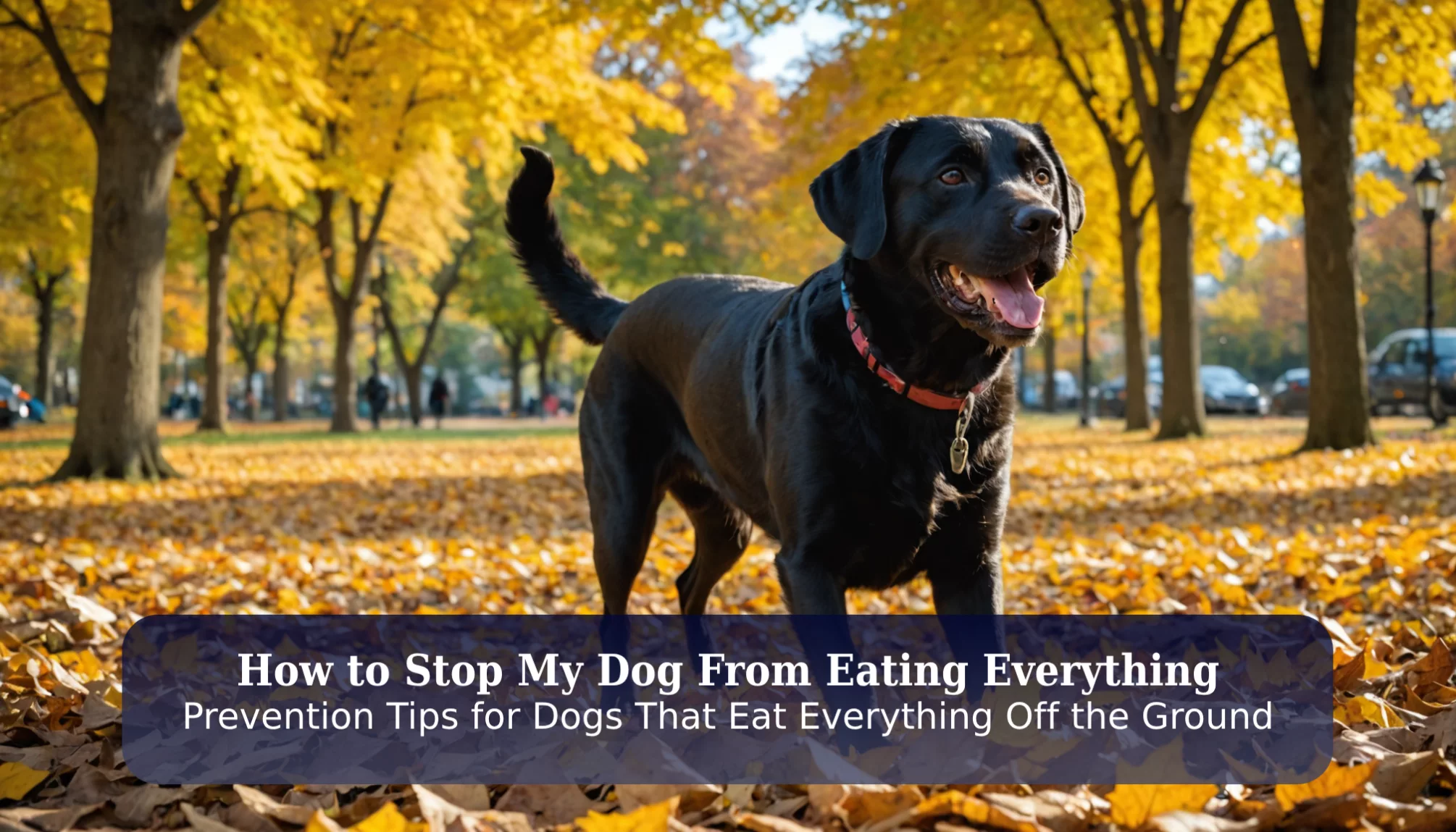Is your puppy a master scavenger, always snatching anything off the ground? Learning how to stop my dog from eating everything is crucial for keeping your furry friend safe and healthy! Dogs will eat anything, and this natural instinct can sometimes lead them to eating non-edible items, which can pose serious health risks like choking or poisoning. By understanding the reasons behind this behavior and how to curb it, you can protect your pooch from harmful items and ensure they stay happy.
In this article, we’ll explore why dogs eat grass, dirt, and other things—from their innate scavenging tendencies to potential medical issues. You’ll discover effective training techniques, like teaching commands to “leave it” or “drop it,” along with helpful tips for managing how to stop my dog from eating everything in their environment. Let’s tackle this issue together and help your dog develop better habits for a safer, more enjoyable life!
Understanding Why Dogs Eat Everything Off the Ground
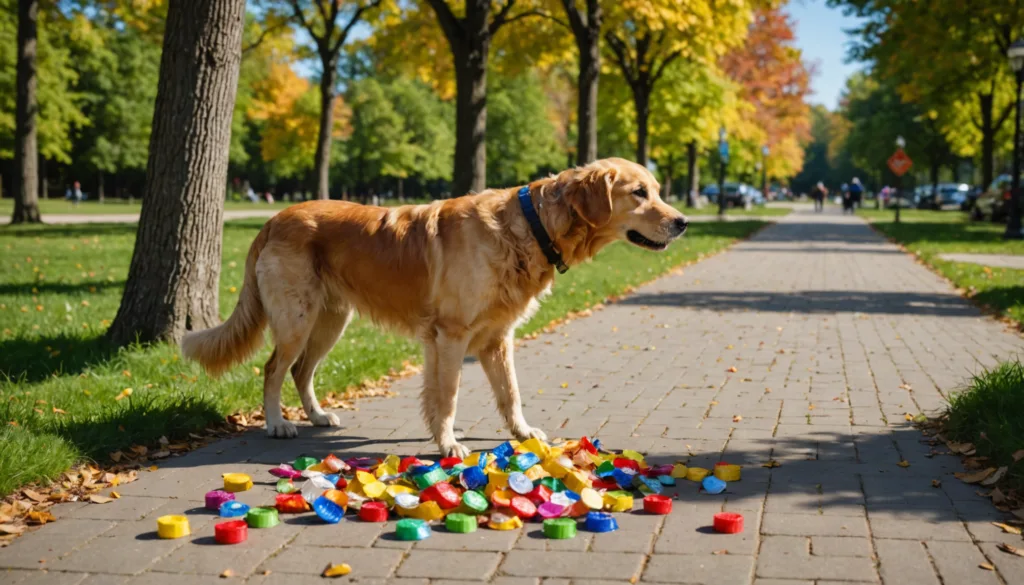
Natural Scavenging Instincts That Make Dogs Eat Everything
Dogs possess a natural scavenging instinct that leads them to explore their surroundings with their mouths. This behavior stems from their ancestry, where scavenging acted as a survival tool for times when food was scarce. Even well-fed adult dogs may engage in behaviors like nibbling on grass or chewing on rocks out of curiosity. Eating grass is generally considered normal canine behavior, and dogs eat grass for a variety of reasons, including seeking different textures and tastes during their explorations.
Medical Conditions That Cause Dogs to Eat Non-Food Items
Some dogs may develop strange eating habits of consuming non-food items due to medical conditions such as pica. This compulsive behavior can be influenced by nutritional deficiencies or gastrointestinal tract issues. It’s essential for pet parents to monitor their dog’s eating habits closely and look for signs of illness, especially if they notice their dog eating the poop of other dogs or chewing rocks. Consulting a veterinarian can provide you with valuable advice on your pet’s nutritional needs based on their size and breed. (PetMD, VetMed)
Behavioral Triggers for Dogs That Eat Everything Off the Ground
Boredom, anxiety, and a lack of exercise are common factors that can trigger dogs to scavenge. When dogs are stressed or not sufficiently stimulated, they may seek out random items to chew on. Recognizing these behavioral patterns is crucial for addressing the issue effectively. Increasing physical activity and providing fun chew toys can help mitigate these urges, ensuring your dog remains a happy and healthy companion. (UCDavis, Pawlicy)
Health Risks When Your Dog Continues to Eat Everything Off the Ground
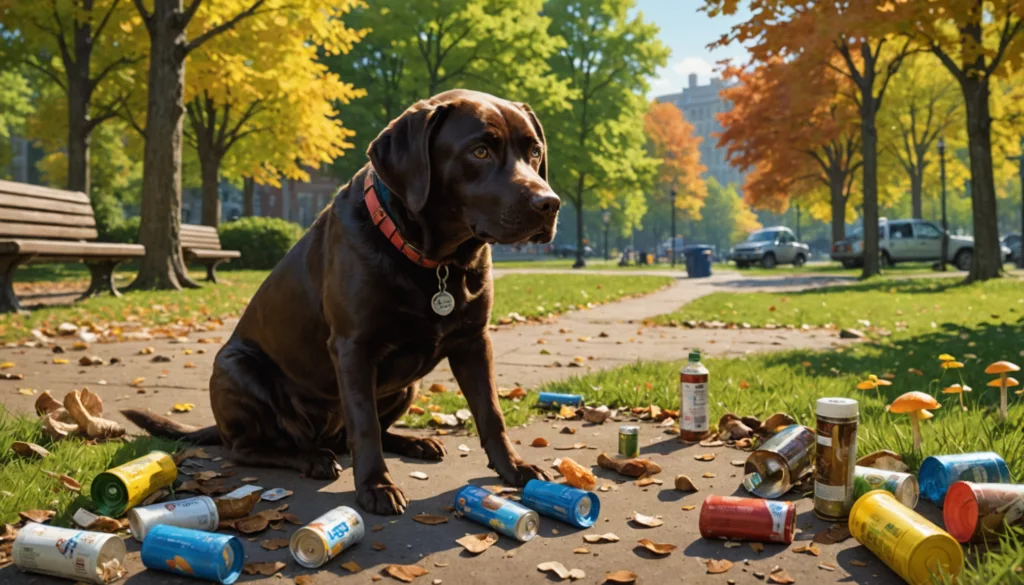
Common Dangers of Dogs That Eat Everything Outdoors
Ingesting non-food items can lead to serious health risks, including choking, intestinal blockages, and damage to teeth. Many dogs naturally explore with their mouths, which can result in them nibbling on rocks or chewing on plastic. These items can pose life-threatening hazards, making it crucial for dog owners to remain vigilant during outdoor activities, especially in areas like the forest floor where harmful objects might be found. (AKC)
Toxic Substances Dogs Might Eat Off the Ground
Dogs may unknowingly consume toxic substances while scavenging outdoors. Common toxins include certain plants, chemicals from pesticides, and spoiled food. Additionally, eating the feces of other animals can transmit parasites and viruses that could cause health issues. Awareness of these hazards is essential for keeping your dog safe; knowing which plants are toxic and ensuring a clean environment can significantly reduce risks associated with your dog’s instinctual scavenging.
How to Stop My Dog From Eating Everything Through Training
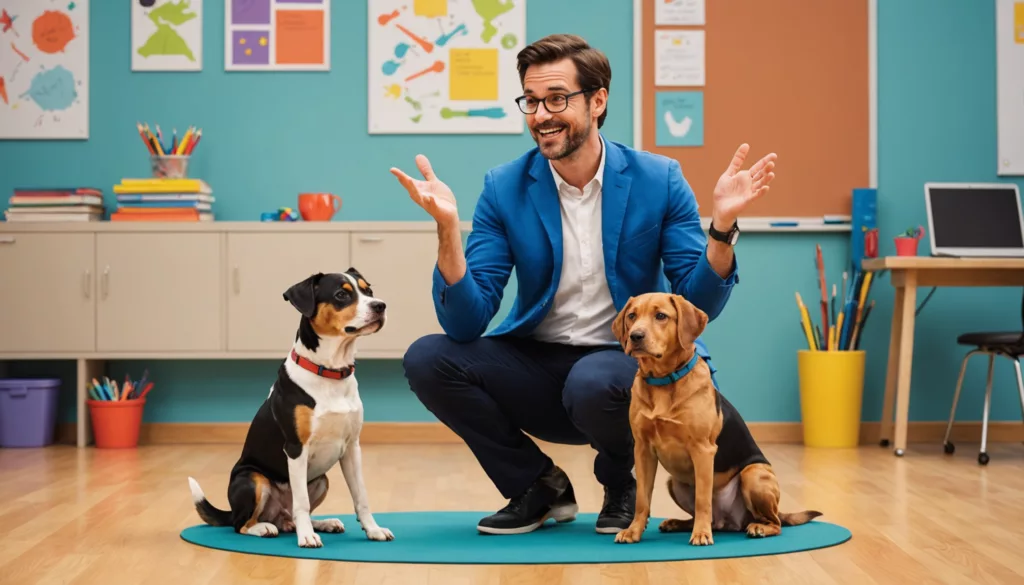
Teaching Reliable “Leave It” and “Drop It” Commands
Training your dog with commands like “leave it” and “drop it” can reduce scavenging behavior. Use short training sessions with rewards to reinforce these commands, helping your pup learn to ignore non-food items effectively. Regular practice in various settings will strengthen their understanding and compliance. In addition to these commands, incorporating a consistent routine during meals can help stop your dog from begging. Make sure to provide meals at the same time each day and avoid giving in to their pleading eyes. Over time, this will teach your dog that they shouldn’t expect food outside of designated meal times, further reducing unwanted behaviors.
Positive Reinforcement Techniques for Dogs That Eat Everything Off the Ground
Positive reinforcement strengthens desirable behaviors. Reward your dog with treats or praise when they ignore non-food items to encourage good habits. Tailoring rewards based on your dog’s preferences enhances their motivation and responsiveness during training sessions.
Environmental Management to Prevent Dogs That Eat Everything Off the Ground
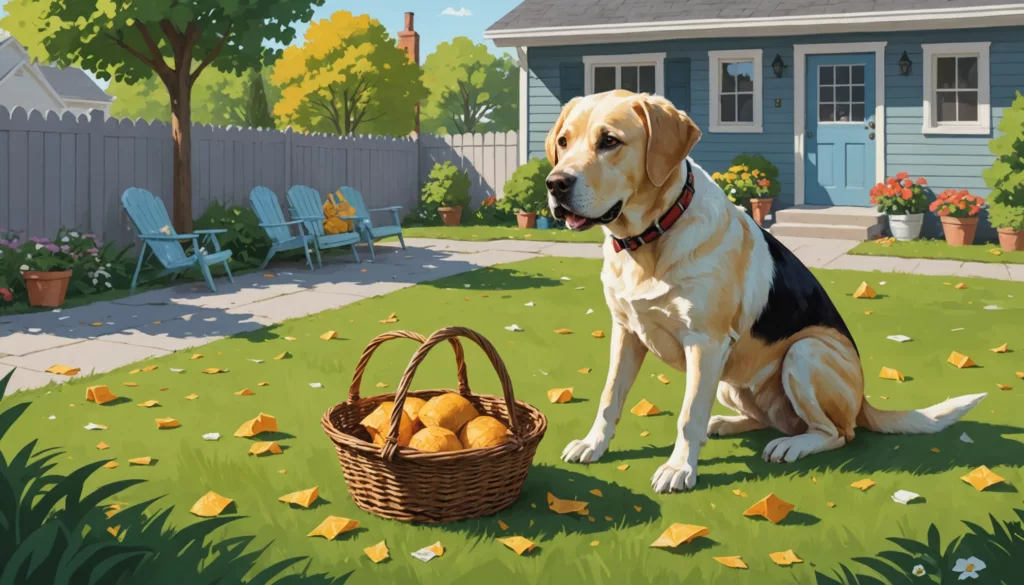
Securing Your Home and Yard Against Scavenging
Creating a secure environment is vital in preventing your dog from accessing harmful items. Keep spaces clear of trash and debris, and use barriers to limit access to risky areas in your home or yard. Regularly inspecting these areas ensures that your dog remains safe during playtime.
Using Basket Muzzles for Dogs That Eat Everything During Walks
Basket muzzles can be an effective tool during walks, allowing dogs to breathe normally while preventing them from eating non-food items off the ground. Ensure the muzzle fits comfortably to avoid distress and gradually introduce it during training sessions. This can be useful for dogs that persistently scavenge or enjoy eating dirt and other non-edible items.
Enrichment Activities to Reduce Desire to Eat Everything Off the Ground
Providing mental stimulation through enrichment activities can help curb scavenging behavior. Here are some examples:
- Interactive Toys: Use toys that dispense treats to keep your dog engaged.
- Puzzle Feeders: Choose feeders that challenge your dog to work for their food.
- Regular Playtime: Schedule daily sessions with various toys.
- Scent Games: Hide treats around the house or yard for your dog to find.
- Agility Training: Set up a simple agility course at home.
Long-Term Solutions for Dogs That Persistently Eat Everything
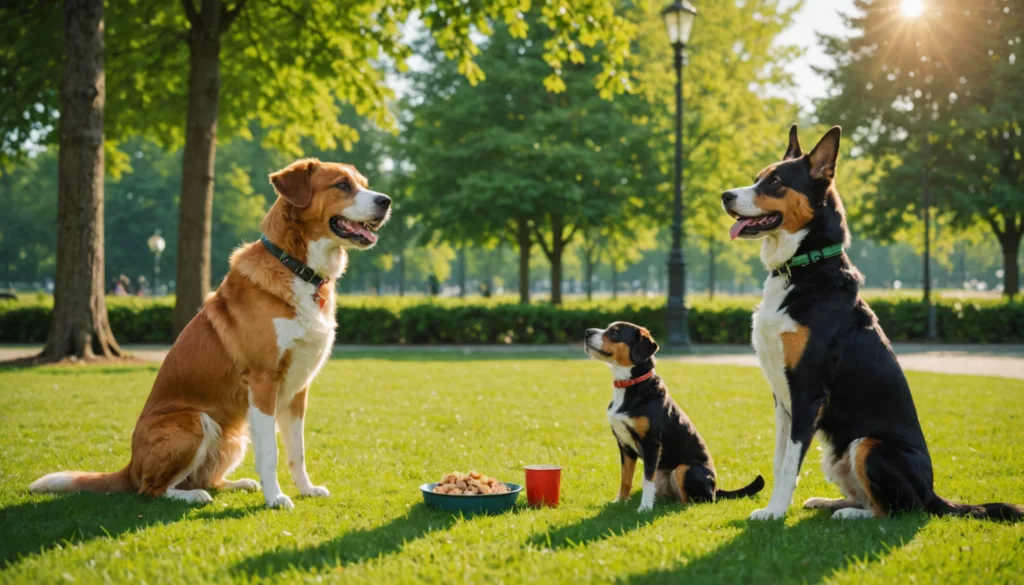
Professional Training Options for Dogs That Eat Everything
For persistent scavengers, professional training can provide tailored solutions. Trainers can identify the underlying causes of your dog’s behavior and implement effective strategies that suit their unique needs.
Dietary Adjustments to Reduce Scavenging Behavior
Adjusting your dog’s diet can also help curb the urge to eat non-food items:
- High-Quality Food: Select nutritious dog food that meets all dietary needs.
- Increased Fiber: Add fiber-rich foods like pumpkin or green beans to meals.
- Regular Feeding Schedule: Feed your dog at the same times each day.
- Healthy Treats: Offer low-calorie snacks instead of table scraps.
- Hydration: Ensure access to fresh water at all times.
When to Consider Behavioral Medication for Dogs That Eat Everything Off the Ground
In severe cases where training and dietary changes do not help, behavioral medication may be an option. Consult a veterinarian for a thorough evaluation of your dog’s behavior and health.
Conclusion
Understanding why dogs eat everything off the ground is crucial for their safety and health. By implementing effective training techniques, managing their environment, and considering dietary adjustments, dog owners can significantly reduce this behavior. Regular veterinary consultations can further support your efforts in keeping your furry friend safe from harmful scavenging habits. If you’re struggling with your dog’s eating habits, remember that professional help is available; many veterinarians are accepting new patients and are passionate about the health of your canine companion.
FAQs
1. Why do dogs eat non-food items?
Dogs eat non-food items due to innate scavenging tendencies, boredom, or medical conditions like pica. This behavior can include munching on stones or even eating rocks. It’s essential to monitor what your dog eats, as poop eating is so common among dogs or animals.
2. What are some health risks associated with this behavior?
Risks include choking, gastrointestinal blockages, and poisoning from toxic substances. Ingesting items like sticks, stones, or anything heavily coated in chemicals can pose a serious hazard to your dog’s health.
3. Can training effectively stop this behavior?
Yes, teaching commands like “leave it” along with positive reinforcement can significantly help reduce unwanted eating habits. If you notice your dog keeps eating everything, it may be beneficial to take your dog for more structured walks or engaging activities to curb this behavior.
4. What should I do if my dog ingests something harmful?
If you suspect your dog has ingested something harmful, such as dead animals or non-food items, take them to the vet immediately for guidance. They can diagnose the situation and recommend appropriate treatments.
5. Are basket muzzles safe?
Yes, when fitted correctly, basket muzzles allow safe breathing while preventing your dog from eating harmful items. This can help ensure that your otherwise healthy companion does not munch on anything they shouldn’t, especially during outdoor activities where food to be found might include harmful substances.
